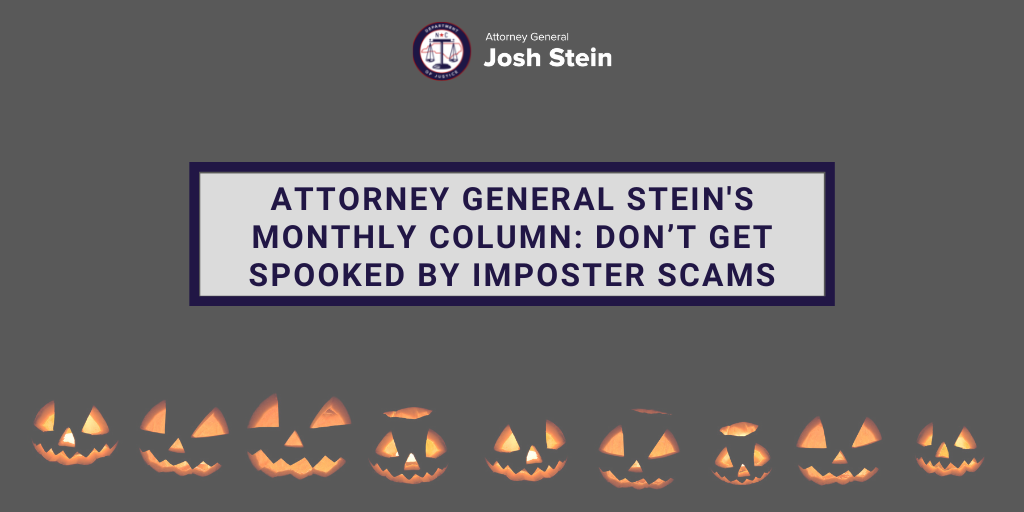
Attorney General Josh Stein
October 2022
Scammers often use scare tactics to trick their victims into handing over their money or personal information. In imposter scams, criminals pretend to represent a government agency, law enforcement, a company, or even a family member. These scams use threats of legal consequences or arrest to make you act without thinking clearly.
Imposter scammers trick their victims into sending them money to pay fines and avoid arrests, usually on a prepaid gift card. According to the FTC, almost 1 million Americans lost nearly $2.5 billion to imposter scams last year. Here’s how you can keep imposter scams from spooking you this Halloween season.
Don’t rely on caller ID to decide if a call is trustworthy. Scammers will use a fake phone number or caller ID to line up with their backstory. The caller ID might even show the government agency or company’s name to make it look real. Scammers use spoofing technology to make their calls look legitimate.
Hang up and call the company or government agency directly. Using a number listed on their website, call the company to ask if the call is legitimate. Know that government agencies or law enforcement will not call and threaten you with arrest. If an unknown caller threatens to arrest you, it’s a scam. Do not send any money or personal information unless you’ve verified the call.
Verify someone calling you and claiming to be a family member who is in trouble. Imposter scammers often target grandparents and families of service members using information they find on social media to act as a grandchild or family member. These calls can be scary, but it is important to stay calm and verify the situation with someone you trust, even if the caller tells you not to.
Never give your money to someone who demands payments from gift cards, wire transfers, or cryptocurrency. Scammers use these methods because they are difficult to track. It is nearly impossible for law enforcement to return money once it’s sent on a gift card. Demands to use a payment method like these are a clear sign of a scam.
This Halloween, use these tips to steer clear of imposter scammers so that the only scary people you encounter this season are trick-or-treaters. If you believe that you have been the victim of a scam, contact my office’s Consumer Protection Division at https://ncdoj.gov/complaint or 1-877-5-NO-SCAM.
